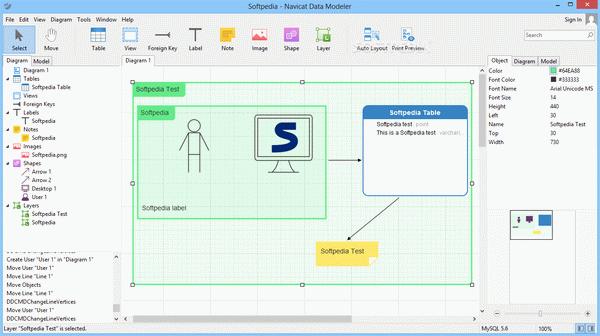Navicat Data Modeler is a professional database creation and management software utility especially designed for database administrators or IT specialists. It supports several database systems, among which MariaDB, MySQL, SQL Server, SQLite, PostgreSQL and Oracle.
The application sports a comprehensive and straightforward interface that even users with little database experience can get accustomed to. Thus, it allows you to design professional logical and physical data models, create database architectures, import models from ODBC data sources, generate SQL or DDL scripts, as well as execute reverse or forward engineering processes.
When you work with several diagrams, you have the possibility to switch between them. Plus, you can customize the main window to facilitate your work by displaying the navigator, sidebar, grid or enabling the full screen mode.
Since most databases are organized and managed through tables, then it is crucial for an administrator or developer to have access to a table editor tool. Therefore, the built-in table designer allows you to seamlessly create, edit and work with fields, foreign keys, indexes or constraints.
Table unique constraints guarantee that data within a column or a group of columns does not repeat itself within the rows of the table. You can select between two indexes types: unique ones that ensure that duplicate values do not repeat themselves or non-unique indexes that do not impose any value restrictions.
With the help of data design tools, you can build models with multiple diagrams, align and re-arrange objects, generate scripts, print models as PDF, PNG or SVG files. In addition to this, you can add layers, images, notes or labels to your database diagrams.
Furthermore, you can import models from various databases by establishing server connections with ODBC, MySQL, SQL Server, SQLite, PostgreSQL or Oracle and secure the transfer by being able to configure SSL, SSH or HTTP settings.
Overall, Navicat Data Modeler is a useful software solution that helps database administrators and users alike simplify the task of designing and managing database structures.

LUIZ
Thanks a lot for sharing Navicat Data Modeler!
Reply
patrick
thanks for working Navicat Data Modeler keygen
Reply
raffaele
grazie mille per il keygen
Reply